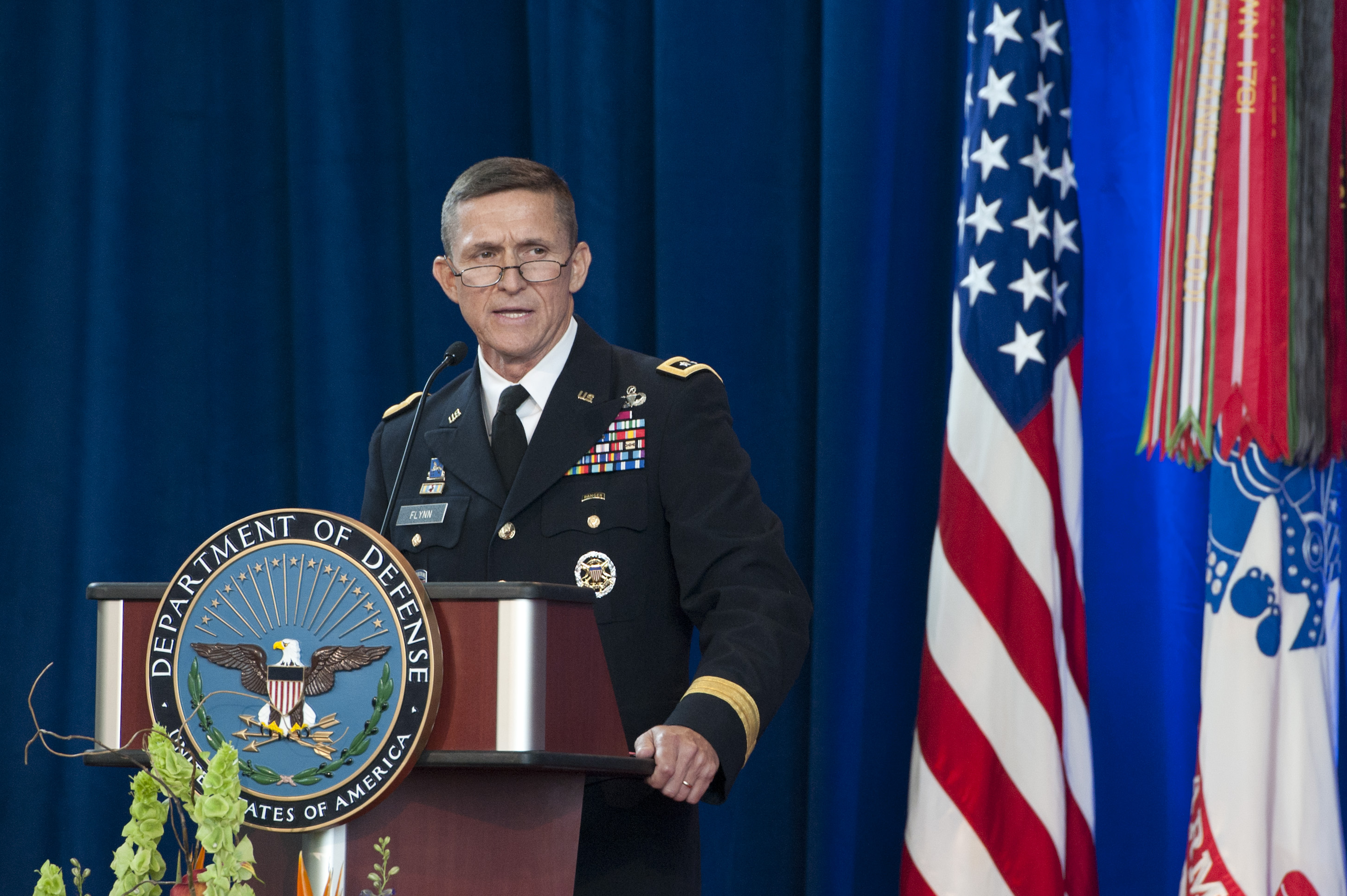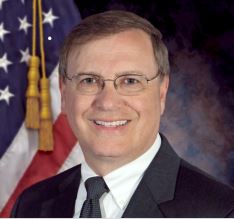A Recent Prosecution Shows the Hypocrisy of Flynn’s Defenders
The same arguments used to defend Michael Flynn could be used against the prosecution of FBI lawyer Kevin Clinesmith. Yet Flynn’s supporters have remained silent.

Published by The Lawfare Institute
in Cooperation With

Materiality appears to mean different things to the leadership of the Justice Department these days, depending on the defendant.
An FBI lawyer named Kevin Clinesmith will reportedly soon plead guilty to a felony in federal district court. According to the charges filed against Clinesmith, he made a false statement to a colleague that was relayed to the Foreign Intelligence Surveillance Court, in connection with an FBI application to surveil Trump campaign foreign policy adviser Carter Page. One element of the statute to which Clinesmith will plead guilty requires that his false statement be “material.” As the Justice Department has long argued—and as federal courts have long held—that means that his false statement had a “natural tendency” to influence a pending matter (here, the surveillance application to the court) or was “capable” of influencing that matter. This is typically an easy element to meet.
Notably, the statute to which Clinesmith will plead guilty is the same statute to which Trump’s former National Security Adviser Michael Flynn twice pleaded guilty in federal court. Yet while many of Flynn’s supporters—the president among them—have defended Flynn by arguing that his lies were not material, this chorus has not lifted its collective voice on behalf of Clinesmith.
According to the charging document, Clinesmith doctored an email to an FBI colleague, adding the words “not a source” to explain Page’s relationship with the CIA. While Clinesmith’s email was literally true, and included the fact that the adviser was instead an operational contact of the CIA, Clinesmith represented the words in the email as those of the CIA—when, in fact, he had inserted them himself. Clinesmith told the Justice Department inspector general that he viewed a source as someone who was a recruited asset, whereas an operational contact was someone who interacted with a source. Even though the altered email was accurate—Page was not a source—Clinesmith’s representation of the language of the email itself was false. This alteration was material because it tended to diminish Page’s relationship with the CIA, which may have provided an innocent explanation for his otherwise suspicious contacts with Russians.
Justice Department lawyers have an absolute duty of candor to the court, and Clinesmith failed here. A judge needed to know Page’s precise relationship with the CIA when reviewing the surveillance application, and so Clinesmith’s conduct warrants punishment. He will face the consequences of his bad decision, including the loss of his job, his license to practice law and, possibly, his liberty.
As with Clinesmith, in prosecuting Flynn the government had to prove the materiality of Flynn’s lies about his December 2016 telephone conversations with the Russian ambassador to the United States. In those conversations, Flynn urged Russia not to retaliate for sanctions imposed by the outgoing Obama administration.
It was absolutely material to an FBI counterintelligence investigation that Flynn, the incoming national security adviser, lied to White House colleagues and then to FBI special agents about conversations with the Russian ambassador that undermined the foreign policy of the United States. Remember, Flynn’s conversations with the Russian ambassador occurred in the wake of massive Russian interference in the 2016 U.S. election, and in the teeth of an ongoing counterintelligence investigation into that interference. Not only were the conversations concerning, but Flynn’s apparent lies about them to the vice president exposed him to blackmail by the Kremlin, which knew the truth. It would have been a gross dereliction of duty for the FBI not to investigate this matter and not to question Flynn.
What’s more, Flynn twice admitted in federal court, and under oath (orally and in writing) that his lies were material. We were federal prosecutors for a long time, and Flynn’s lies strike us as plainly material—an easy case.
Yet the president and many of his supporters take the opposite view. Flynn’s lies to the FBI were not material, they argue, because the FBI knew the truth of Flynn’s calls with the Russian ambassador when the agents interviewed him. That, they claim, was a “perjury trap.” It is not. A perjury trap exists when the sole purpose for questioning a witness is to get him to lie.
Here, even if the agents already knew from recordings what Flynn said to the Russian ambassador, they had legitimate reasons to question him: They wanted to know why Flynn asked the Russian ambassador not to retaliate against the sanctions, whether anyone had directed him to do so and whether anyone else on the transition team knew about it. Instead, Flynn lied, suggesting a consciousness of guilt and elevating concerns within the Justice Department about the potential national security threat posed by Flynn.
These lies were material because they tended to influence the matter under investigation. Had Flynn told the truth, agents would have learned then what Special Counsel Robert Mueller’s investigation determined months later—that Flynn had coordinated this strategy with some members of the Trump transition team in a series of phone calls before and after his conversations with the Russian ambassador. Flynn’s lies were a cover-up for conduct that was arguably criminal under the Foreign Agents Registration Act or theoretically criminal under the Logan Act, and certainly politically damaging to the Trump team. The fact that the FBI knew—or suspected it knew—the truth when it interviewed Flynn is irrelevant. He could have given honest answers or refused to speak with them, but he chose to lie.
Ironically, the Clinesmith charges were filed at the same time that the Justice Department awaits a ruling on its motion to dismiss the case against Flynn—for lack of materiality. The department tied itself into knots to argue that Flynn’s lies were immaterial. Yet, strangely, it gives no such benefit to Clinesmith.
We wonder why these Flynn defenders—led by the president and the attorney general—have not lifted their voices on behalf of Clinesmith. Proof of materiality seems weaker in Clinesmith’s case than in Flynn’s. The CIA email that Clinesmith altered stated accurately that Page was “not a source” but that he was an “operational contact,” that is, someone with a relationship with the CIA. Clinesmith’s alteration arguably clarified the adviser’s relationship with the CIA rather than obscuring it, though this does not excuse his misrepresentation.
In the real world, these details about Clinesmith’s email do not defeat the materiality requirement—especially given that, as we have noted, materiality is typically easy to prove. But the arguments made in defense of Flynn would also seem to apply to Clinesmith. If we applied the ridiculous standard used by the Justice Department in the Flynn case to Clinesmith, then his alteration was similarly not material.
Clinesmith’s personal lawyer also claims that his client did not intend to mislead the court or his colleagues at the FBI. There seems to be some evidence of that. Indeed, Clinesmith reportedly submitted to his FBI colleague the original CIA email along with his alteration.
Because Clinesmith has agreed to plead guilty, the Justice Department will not be put to its burden of proof on the materiality element at trial. But in future cases, we expect to see defense lawyers adopt the department’s tortured arguments regarding materiality in the Flynn case, weakening prosecutors’ ability to obtain appropriate convictions in other cases.
As veteran federal prosecutors, we know that the law must be applied equally, without fear or favor, and without regard to politics. Both Clinesmith and Flynn, we believe, made materially false statements to the FBI. Why do the Flynn apologists raise their voices for one man, but not the other, when similar arguments could be raised for both? Do they prefer the conviction of Clinesmith and the absolution of Flynn? That would be gross hypocrisy.




.png?sfvrsn=48e6afb0_5)

